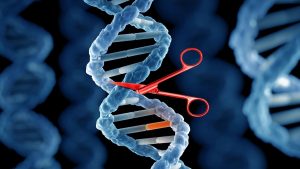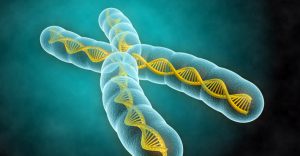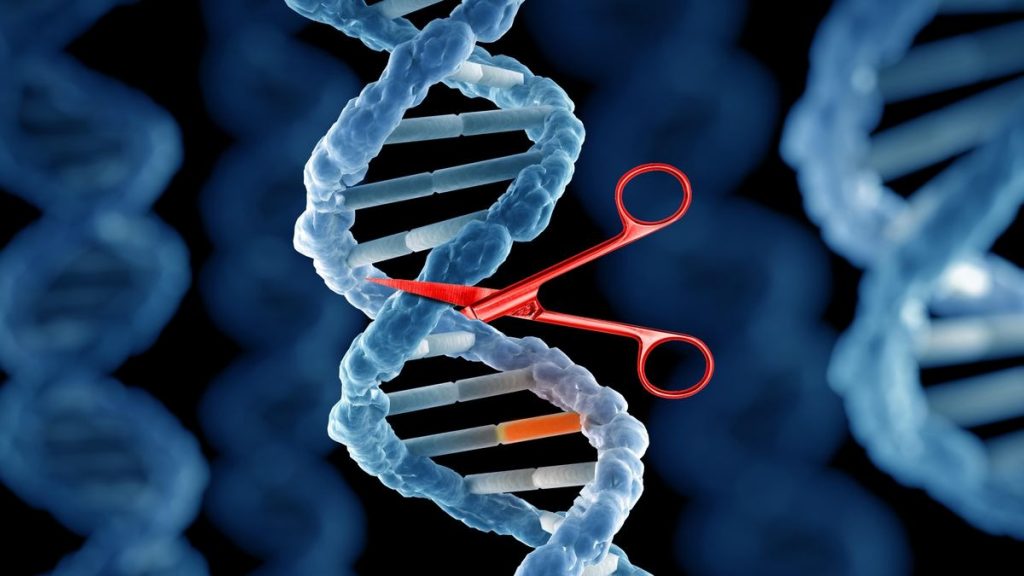
Eugenics has been used extensively by ancient populations, such as the Greeks, Romans and the Spartans. In ancient Greece, depending on the “tribe or the ancient city state” children would often be examined fully for any sort of birth defects that hindered their ability “to fight or contribute to the society” 3 This demonstrates how ancient cities wanted to have better member to help fight or hunt. It also shows how children were expected to fight from a young age in order to better contribute to the society. In the middle of the eighteenth century, many British citizens, after reading the teachings of Darwin, started to “endorse the idea of eugenics and the idea of creating individuals that would better society” 4 The concept of Eugenics started to take off as more British people showed their support. Many people around the world including those in America started to learn more about this concept and what it might do for the bettering of humanity.
Within the twentieth century, eugenics started to take off with in America. The United States started to implement eugenic policies in laws and immigration policies. Many proponents of eugenics believe that immigrants were not of the same mental capacity as immigrants of other origins such as those of Northern Europe. The country tried to pass statutes which favored immigration towards Northern and Western Europe and lower immigration rates from southern Europe . Individuals who favored eugenics were attempting to make the country better genetically and it was assumed this could be accomplished by passing certain quotas to limit the amount of Southern and Eastern Europeans coming here. It shows how those from Northern Europe were assumed to be better intellectually based off their national origin and racial heritage. This started to brew a concept of “fit vs unfit individuals or those who were better to have a family and raise children” 5 As people were coming to America and attempting to find jobs and work society was changing thanks to the innovation of technology and the expansion of medicine. The idea of American society was evolving. While American society has always pioneered itself on individualism, thinking in the twentieth century started to focus on the American family, particularly, those who owned a car and owned a house. Proponents of eugenics started to come out against those who were not from Northern Europe as well as those who did not work good jobs. It was argued that people who worked these lower jobs and were not as educated tended to be lazier and unfaithful in marriages and were therefore not fit to raise children.
In the early twentieth century, legislatures of “Michigan and Indiana approved sterilization of men who had lived in indignant homes or had been mentally ill” 6 These were the first legislatures to enact bills of this nature. Indiana became the first place in the world that enacted forced sterilization for the mentally ill. This would go on to motivate others in the world to soon follow the process. In the 1930s, leaders in prewar Germany started to argue for the Aryan look and better racial features. They promoted various propaganda and movies that would be released to the public. There was also since 1918 a growing myth which was held true by many Germans that they had been betrayed by their politicians who were of Jewish ancestry. By the early nineteen thirties sterilizations were greatly increasing in Germany. This was based off American eugenic laws which gave top German officials the idea of putting down those deemed not only mentally unfit, but racially unfit as well. Many top German officials started to experiment on the racially inferior without their consent and see the effects of different weapons or poisons. During the war, the Japanese unit 731 engaged in many activities that involved “human test subjects that were dissected while awake as well as subjected to frostbite tests as well” 7 During this period eugenics emerged as a horrific principle that many started to take a stand against especially after World War Two with the Nuremberg Trials.

Other examples of eugenics include the concept of invitro fertilization. This is a common use of eugenics that is practiced daily. In vitro fertilization came out within the last forty years and has proved to be very successful to couples. Scientists began to experiment with different animal embryos and sperm and soon discovered that there could be fertilization that could have happened outside of the organism. This was a breakthrough and led to other studies in organisms to confirm this teaching. Many couples may have trouble conceiving children and may have to turn to other options in order to have a child. This process was able to provide a solution for many couples who were struggling with this issue. With the concept of in vitro fertilization, couples are now able to have children and grow their families. In vitro fertilization also has other applications, such as the” enhancing the food production of animals as well as promoting endangered animals” 9 This is how in vitro fertilization can be very beneficial. Endangered species are now able to reproduce with this procedure to ensure their survival. While there can be risks to this treatment, such as multiple births as well as the spread of infectious disease, in vitro fertilization is very beneficial.
The concept of designer babies has become more prevalent in recent years with the advancement of genetic technology. Individuals have argued that this concept may in

The topic of Eugenics is a great ethical concern in the topic of genetics and to this day continues to be one. As humanity moves past the horrors of the second world war new medical innovations continue to come out that bring eugenics to a head, there are several challenges moving forward. While in vitro fertilization and gene therapy has proven to be successful in combating different cancers and assisting in the birth of children. The concept of designer babies raises concerns in the field of genetics. While children will be able to be free of inherited diseases, ethical dilemmas for many individuals may come into play. People may feel conflicted about altering their child and not accepting them for the way that they were made. This also deals with a basic principle in genetics, genetic diversity. With the emergence of one specific phenotype, or how people look, diversity may soon decrease from the population. Genetic diversity drives evolution and assists in a species evolving over time in order to adapt to the changing world. This may lead to a cataclysmic event where a disease could eliminate most of the population due to the high similarity of people everywhere on the planet. The field of eugenics will continue to be discussed over the coming years as humanity advances more in medicine and in different gene therapies.
- “How Is Genetic Engineering Evolving through CRISPR Technology?” Online Biotechnology Course, BioScience, Internships & Projects, https://www.learntoupgrade.com/blog/how-is-genetic-engineering-evolving-through-crispr-technology. ↵
- McConnell, David, and Shanon Phelan. “The Devolution of Eugenic Practices: Sexual and Reproductive Health and Oppression of People with Intellectual Disability.” Social Science & Medicine, vol. 298, 2022, p. 114877., https://doi.org/10.1016/j.socscimed.2022.114877 ↵
- Gates R. R. (1932). Eugenics and education: The practices of ancient, primitive, and medieval societies. The Eugenics review, 23(4), 305–309. ↵
- Gates R. R. (1932). Eugenics and education: The practices of ancient, primitive, and medieval societies. The Eugenics review, 23(4), 305–309 ↵
- Pernick, M S. “Eugenics and Public Health in American History.” American Journal of Public Health, vol. 87, no. 11, 1997, pp. 1767–1772., https://doi.org/10.2105/ajph.87.11.1767 ↵
- Reilly, Philip R. “Eugenics and Involuntary Sterilization: 1907–2015.” Annual Review of Genomics and Human Genetics, vol. 16, no. 1, 2015, pp. 351–368., https://doi.org/10.1146/annurev-genom-090314-024930. ↵
- Hickey, D., Li, S. S., Morrison, C., Schulz, R., Thiry, M., & Sorensen, K. (2017). Unit 731 and moral repair. Journal of Medical Ethics, 43(4), 270. doi: https://doi.org/10.1136/medethics-2015-103177. ↵
- The Fascinating History of Eugenics. (2014, February 13). Today I Found Out. http://www.todayifoundout.com/index.php/2014/02/fascinating-history-eugenics/ ↵
- Bavister, BD. “Early History of in Vitro Fertilization.” Reproduction, 2002, pp. 181–196., https://doi.org/10.1530/rep.0.1240181. ↵
- Eugenics | Bioethics.com. (n.d.). Retrieved November 3, 2022, from https://bioethics.com/eugenics ↵
- Steinbock, Bonnie. “Designer Babies: Choosing Our Children’s Genes.” The Lancet, vol. 372, no. 9646, 2008, pp. 1294–1295., https://doi.org/10.1016/s0140-6736(08)61538-x. ↵
- Steinbock, Bonnie. “Designer Babies: Choosing Our Children’s Genes.” The Lancet, vol. 372, no. 9646, 2008, pp. 1294–1295., https://doi.org/10.1016/s0140-6736(08)61538-x. ↵



12 comments
Michaell Alonzo
Hello Anthony, congrats for being nominated. The question of who gets to determine what constitutes an advancement of the human race, in this case by gene alterations, is what I believe to be the ethical dilemma with eugenics. Playing god and attempting to intervene is quite dangerous. It is mind-boggling to consider how far humanity has come and how much more growth there is to come. I think that the medical advancements that can result from this can have positive outcomes.
Jocelyn Elias
Your essay is very informative and it does raise a question of Ethics it’s one of the most part questions that pop into mind when it comes to genetic modification. It does raise the question of discrimination against people with disabilities. On the contrary, also have this new way of solving issues such as cancer and disabilities. Congratulations on your nomination.
Alyssa Leos
First I want to say congratulations on your article being nominated for an award. I personally never heard of eugenics. It’s been around for more than 2000 years and this is the first time I’m hearing about it. I can’t imagine having a designer baby. I would rather accept the baby for the way they were made. Again congratulations on your nomination!
Quianna Wynn
I really enjoyed this article it enlightened me on something I previously was unaware of as it pertains to the science of it all. Eugenics I feel has become more common as we enter a new day and age where everything we do can mostly be modified genetically. I really enjoyed reading this article and it was very informative.
Kayla Braxton-Young
Reading this article, I have noticed that I don’t really know much about eugenics. In my previous science classes, I have learned about genetics and DNA, but I haven’t really learned anything more than that. I really like this article, because it helped me learn more about eugenics and how it has changed. You provided a lot of information and made the article interesting enough to read throughout.
Alia Hernandez Daraiseh
Congratulations on your nomination to this amazing article. There’s a lot of controversial topics, including the designing babies. Aside from that, this article touches on how far we have advanced with technology, and it is fascinating yet intimidating. The amount of things we can accomplish with these advancements, it is incredible. Great job.
Joshua Marroquin
First of all, what an amazing article this was, since it was very informative, very entertaining to read, and more importantly very descriptive and easy for the reader to follow. I am amazed on how far human advancements are nowadays, since they have the capacity to alter human DNA down to every cell. It is crazy to think what we as humans are truly capable of.
Carlos Cenoz
This was a very interesting article! I have always been interested in how the human body has revolutionized over the years, and this article has given me a better understanding of how DNA can be affected or even altered. The article mentioned how scientists may be able to remove certain disorders from developing in the body. This is something very interesting as it could be a solution for Alzheimer’s disease. Great Job!
Kelly Guadalupe Arevalo
Nice article. Very interesting topic. I think the ethical problem with eugenics, in this case gene modifications, is who and under which criteria gets to decide what constitutes an improvement to the human race, because, aside of the possibility of “erasing” some diseases, it is obvious that problematic ideas will appear about this, as they already have. It is very risky to try to intervene, and play god.
Shecid Sanchez
congratulations on receiving an award nomination! This was such a great story that was amazingly put together. This topic was very interesting to me because I’ve actually never heard of this before so I very much enjoyed learning about a new topic. I still can’t wrap my head around genetically modifying a baby to me that is so unnatural and itrelaly shows how fare are progressing in genetic technology